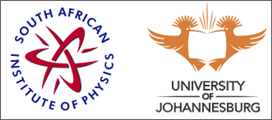Speaker
Abstract content <br> (Max 300 words)<br><a href="http://events.saip.org.za/getFile.py/access?resId=0&materialId=0&confId=34" target="_blank">Formatting &<br>Special chars</a>
The mathematical properties of harmonic functions have made Fourier-based algorithms very popular in searches for periodic behaviour in stellar light curves and other astronomical data. The Discrete Fourier transform (DFT) and the Lomb-Scargle periodogram (LS) have been in common use for many decades, as methods particularly suitable for the non-equally-spaced time data that are typical of astronomical measurements. More recently, Cumming (1999) and Zechmeister and Kuerster (2009) have introduced refinements to the LS method that embody the 'Generalised Lomb-Scargle" or GLS method. Various recent tests of these methods (e.g. Vio et al. (2013) and Graham et al. (2013)) have emphasised the strengths and deficiencies that accompany each of them. These test results demonstrate that certain methods are distinctly unsuitable for certain types of data and could lead to erroneous conclusions about the types of periodic behaviour present in measured data. Given the rapidly growing body of time-domain data in astronomy and the considerable importance of some of the conclusions that have been made on the basis of these data, the recent developments in the study of period-finding algorithms are significant. In this presentation, the main findings of the above-mentioned tests will be discussed and summarised, with a view to offering guidance in choosing an appropriate period-finding method for particular sets of observational data.
Apply to be<br> considered for a student <br> award (Yes / No)?
No
Would you like to <br> submit a short paper <br> for the Conference <br> Proceedings (Yes / No)?
Yes
Level for award<br> (Hons, MSc, <br> PhD)?
No

